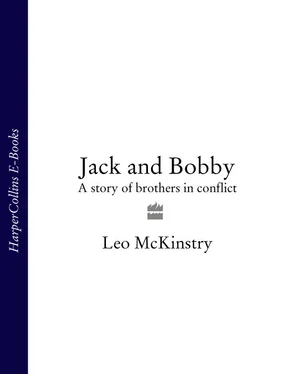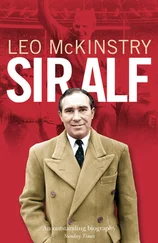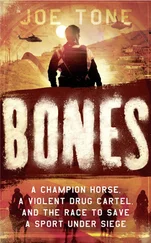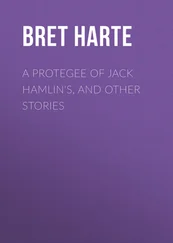Despite the attractions of football, pigeons, boxing and a few pints with mates, it was still a very tough life for the miners of Ashington. The pay was poor, the job insecure, the conditions dangerous. Bob Charlton worked through the 1966 World Cup semi-final not just because of his indifference towards football but also because he was worried about losing a day’s pay. In the same way, he never missed a day’s work even when seriously injured. Mike Kirkup, an Ashington local historian, a contemporary of Bobby’s and himself a former miner, gives this glimpse into the precarious existence faced by miners. ‘A miner’s cottage was tied to work at the pit. So the colliery owners could always use that as a threat. On one notorious occasion, when 13 men were killed at the Woodhorn colliery in 1916, the notices of eviction went out to the widows within just three months of this disaster. It was a pretty harsh regime.’
The actual work for the miners could hardly have been more unpleasant. Forced to toil in a dirty, dark environment more than 800 feet underground, they were so cramped that they had permanent scabs on their backs from crawling along the tunnels. Little wonder that old Bob Charlton, who started work in the mines the day after he left school at the age of just 14, once took his second son, Bobby, to the colliery and told him, ‘I don’t want you ever going down there, doing what I’ve had to do all my life to earn a living.’ But Bobby never had any intention of joining his father in the pit. ‘I was determined about that, even if I had to travel and seek my fortune elsewhere,’ he once said. What had particularly struck Bobby was the physical legacy of the job. ‘You can always tell a miner just by looking at his hands. At first glance, you might just think they were dirty, but when you looked more closely, you saw that they were full of scars, the accumulation of hundreds and hundreds of cuts made over the years.’ Similarly, Jack Charlton spent just one day underground as a 16-year-old trainee miner before handing in his notice. ‘I’ve seen it, I’ve done it, I’ve had enough. I don’t know what I’m going to do with the rest of my life, but it won’t be that,’ he told his colliery manager when he resigned his post.
Nor were there many financial rewards for a miner’s family. Bobby recalls his father going out to work every morning and checking the contents of his satchel: ‘Bait (sandwiches), bottle (water), lamp, carbide, tabs (cigarettes),’ and adding with a grin and a tap of his pockets, ‘but nae money.’ In contrast to their wealthy status today, Jack and Bobby grew up in a small house without an inside toilet or running water. The brothers, now so distant, had, as small children, to share the same bed because of the lack of space. Though Cissie provided a warm home, there were precious few luxuries. Food that we take for granted today, such as pork and chicken, was a rarity then, as Bobby once recalled. ‘It was a great celebration in the street when a pig was killed. Everyone came from all over the place and got their little share of it. I used to ask, “Why can’t we just eat it straight away?” But I was told that it had to be hung and salted, otherwise it would not keep.’
In the hardened circumstances of the time, the values of family solidarity were a vital source of support. But that is not to say that the Charltons or the Milburns were paragons of domestic virtue. One of Cissie’s grandfathers was a heavy drinker who suffered from mental instability after taking a blow from a policeman’s truncheon. When he was in one of his more savage, drunken moods, his wife was forced to flee the family home. Her own father, Tanner Milburn, was a selfish, mean, scheming rogue who would rather spend his money on gambling and alcohol than on his own family. A fly-by-night bookmaker, he also trained athletes, who were used as a means of enhancing his illegal profits. His disloyalty to his family was graphically exposed by his cynical behaviour over a major 110-yard sprint in which his own son Stan, a fine local runner, was one of the two favourites. Instead of backing his son, for whom he acted as a trainer, he struck a deal with the manager of the other favourite, whereby they agreed to share equally the £20 prize money – a vast sum in pre-war Ashington – whichever boy won. After the race, in which Stan came second, Tanner refused to give his son a penny and instead attacked him for his failure to win. Stan was so furious with his father that he threw his sprint shoes in the fire, vowing never to run again.
Cissie and Bob had their own problems. They had married just six months after they first met, at a dance in the Princess Ballroom of Ashington, and had four sons, Jack the oldest, followed by Bobby, Gordon and Tommy. There was a time when they came close to splitting up, since Cissie could find her husband intensely aggravating. ‘He embarrassed me, he annoyed me, he argued just for the sake of an argument,’ she once wrote, while Bob disliked her boasting and all the attention that she encouraged over her sons. Alan Lavelle, who went to school with the Charltons, recalls that when he was secretary of the Newbiggin working men’s club, ‘Old Bob used to come in, looking a bit down. I would say, “Bob, what’s the matter?” And he’d reply, “I just get sick of everyone asking about wor Bobby. Why can’t I just have a drink in peace?”’ In an interview with local historian Mike Kirkup, Cissie revealed how close she came to separation: ‘There was no such thing as divorce for the likes of us. If you made a mistake in your choice of man, you just stuck it out for the sake of the bairns. Me and Bob were going through a rough patch and I said to him, “I’m leaving you the minute wor Tommy is 15.” Come the day of his 15th birthday, Bob says to me, “Well, are you not leaving then?” “No,” I told him, “You’ve mellowed since then.” ‘
Bob and Cissie’s first child, Jack, was born on 8 May 1935. Reflecting her obsession with football, one of her first comments to a neighbour about her new son was, ‘Eee, the bairn’s lovely. And his feet are fine too.’ But, as a child, Jack did not just use his feet for football; he also used them to wander endlessly in the countryside around Ashington. The fields, woods and streams of Northumberland became almost a second home to him as he would walk for miles, studying wildlife, trapping small animals with his makeshift snares, and even attempting to catch fish with his bare hands before he bought his first rod. His deep attachment to rural life was formed in those long, childhood journeys. ‘I loved that landscape and I love it to this day. I have to go into cities and crowds as part of my job, but I loathe it,’ he said in 1994. Bill Merryweather, a childhood friend of Jack’s, gave me this memory: ‘He always had to be outdoors, picking up anything from mushrooms to fish. Sometimes the two of us would go out poaching at five in the morning. If it went well, we would end up with two or three rabbits. And he’s never changed from when he was a little lad. He’s still at his happiest when he’s out shooting and fishing.’
Jack developed his favourite haunts, such as a local swamp called the Sandy Desert. In winter this was a vast, festering bog. But in summer, when it had dried out, it became a large, dusty hollow, riven with cracks. Used as a rubbish dump, it always attracted a large number of rats and Jack would spend hours shooting at them with his catapult. When he was older and had acquired the right equipment, Jack would regularly spend his nights fishing off the coast at Newbiggin, a seaside village just three miles from Ashington. Jackie Lothian remembers an incident which illustrates both Jack’s bravery and his devotion to fishing. ‘When we were about 13, Jack would often cycle over to my home at Newbiggin, have a game of cards and some supper, and then go out fishing. One night Jack cast his line, and somehow the hook went right into his thumb. Another lad and I tried to get it out but couldn’t, because the sky was pitch black. Then Jack breezily said, “I’ll have to go off to hospital, so look after my things.” Off he cycled over to Ashington hospital, with the hook still in his thumb. He got it out, had the wound stitched up, and then, that very night, he cycled back and carried on fishing with us.’ Jackie Lothian says that they could be far more reckless as children than would be tolerated today. ‘I cannot believe the things we used to get up to. As a dare, for instance, we would get on the swings at Hirst Park, and push as hard as we could until we could complete a full circle, right over the top through 360 degrees. We also used to try and catch minnows in Bothal Woods, where there was a big waterfall. I suppose, looking back, it was very dangerous but we just never used to think about it.’
Читать дальше












